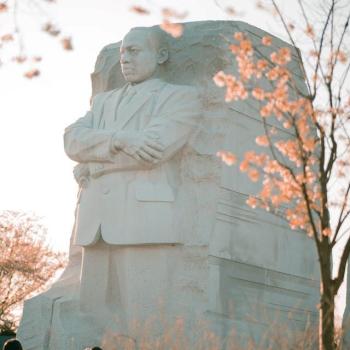 Lectionary Reflections: Year A
Lectionary Reflections: Year A
Eighth Sunday after Epiphany: February 27, 2011
Isaiah 49:8-16a
As we move closer to Lent, our hearts turn ever more to hope. I do not wish to speak for you, and indeed I cannot, but Lent is always a very hard time for me in the Christian year, filled with "giving up" and "looking within" and "waiting for" the awful and the mysterious. As Epiphany becomes a distant memory, and Lent looms, we find a grand word in a return to the pages of II-Isaiah, that magnificent prophet of hope in our exile.
II-Isaiah begins his marvelous words to the exiles in Babylon with the unforgettable word of "comfort, comfort my people, says your God" (40:1). And as he concludes, he sends them out "with joy," promising that they will "be lead back in peace" (55:12). His language is brim-full of newness and joy and hope. We on the journey toward Lent need an assurance of God's good will for us, and the exilic prophet provides it in spades. We must remember this language of grace as we move to the darkest and lightest moments of the Christian year.
"In a time of favor I have answered you, on a day of salvation I have helped you" (49:8). In every way he knows how, II-Isaiah tells the Israelite exiles, who have now been in Babylon for two full generations, that they have been visited by God, and that that God is about to send them home to a land few if any of them have ever seen.
These words are apparently written after an astonishing historical event has occurred. The Persian king, Cyrus, later called "great," has overthrown the Babylonian empire in a sudden surge into the capital city, has taken over that empire practically overnight, and has announced that all captive peoples may now return home under Persian protection and with the help of Persian resources. Little wonder that II-Isaiah names Cyrus, pagan king, God's "messiah" (45:1), who has been chosen by YHWH specifically "for the sake of my servant Jacob, and Israel my chosen" (45:4).
We can be certain that if Cyrus were told that his sole role in the world was to save the struggling exiles of the backwater kingdom of Israel, he would have laughed heartily in his Persian wine. He had far bigger fish than puny Israel to fry. His eyes were on the west and the fabled riches of Egypt and the vast lands of the Mediterranean basin. The scruffy exiles, living hand-to-mouth in the ghetto of Tel-Abib in one of Babylon's poorest corners, were of little or no interest to the mighty Persians. But II-Isaiah is a prophet, not a historian or political commentator. He sees not the size of armies or the splendor of kings but the work of his God with all those human enterprises. This God may use whomever that God chooses to use; another pagan king will do nicely to offer freedom to the chosen ones of God. Hence, God has again, as at the Sea of Reeds, at Mount Sinai, and at the river Jordan, acted on behalf of Israel, has "answered" and "saved" them one more time.
They will indeed head home "to establish the land, to apportion the desolate heritages" (49:8). Exile has at last ended; the exiles can almost smell the land of promise they have long hoped to see and reestablish. And as they hope to begin their journey there, God bids all "prisoners 'Come out,'" all "those in darkness, 'Show yourselves'" (49:9). None shall be left behind in dreadful Babylon; all shall have the chance to make the journey to the fabled homeland of God. And they will find God's protection all along the route of return: they shall "feed along the ways, shall find "pasture on the trails," shall not "hunger or thirst," shall not be assailed by "scorching wind or sun" (49:9-10). God will have "pity" on them, and will guide them near "springs of water," always a vital need on trips through the near east.
Isaiah repeats his grand announcement of 40:3-4 when he says, "I will turn all my mountains into a road, and my highways shall be raised up" (49:11). The trip home will be completely unlike the trudging, long journey to exile some fifty years before. The return will be marked by abundant food and water and safety for all. Indeed, the "heavens and the mountains" themselves will burst into song" (49:13), a memorable metaphor the prophet repeats in chapter 55. The image of joyful and hopeful returnees is rich and memorable.
But what of Zion, the holy city? If any of the exiles ever saw it, their memory was of a devastated wreck, the king's palace burned, the Solomonic Temple stripped and destroyed stone-by-stone. What could they expect of a blasted hulk as a fit place for their hopeful future? The prophet imagines the city itself speaking: "YHWH has forsaken me; my YHWH has forgotten me" (49:14)! But just as II-Isaiah has buoyed the hopes of the exiles, so now he lifts the spirits of the struggling city in an astonishing and moving image. "Can a woman forget her nursing child or show no compassion for the child of her womb" (49:15)?





